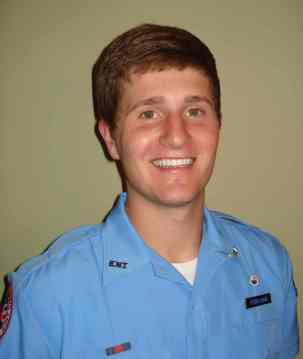On the evening of Sept. 30, Palmer Feibelman received an email he didn’t expect. It informed him that he might not be receiving his monthly stipend of $2,122 from the U.S. Navy due to the government shutdown.
Feibelman is a first-year medical student at the Georgia Regents University-University of Georgia Medical Partnership in Athens and a recipient in the Health Professions Scholarship Program.
The scholarships are given by the various branches of the military and pay for tuition and books as well as providing funds to cover living expenses. The program is not only for prospective physicians, but also for dentists, optometrists and clinical psychologists. In return for the financial support, the recipients agree to serve in uniform. Feibelman, for instance, will spend at least four years as a medical officer in the Navy.
“One of the major reasons for signing on to this scholarship was not having to take on any loans, so I’ve been very fortunate that I don’t have to deal with that,” said Feibelman.
Feibelman’s financial security depends on the scholarship. He has no source of income outside of it, and the time for financial aid arrangements has long since passed for the semester.
He is one of many students in Georgia enrolled in the Health Professions Scholarship Program. For now, Feibelman and his fellow scholarship recipients have no choice but to wait and hope for the government to full operations soon.
Fortunately, Feibelman’s costs of living have been minimal. The lifestyle of the medical student leaves little room for lavish spending, and he has been able to save much of the money he has been given already. But what he will miss is peace of mind.
“Being a part of this scholarship program has made things a lot easier,” said Feibelman. “There are a lot of things that I haven’t had to worry about. A lot of my classmates are worried about figuring out how to take out loans, worried about getting financial aid in time, worrying about applying for different scholarships. Not having to worry about that has been huge.”
Feibelman was surprised to learn that his financial standing was in jeopardy. He was aware of the dispute in Washington that might halt some federal spending, but it seemed unlikely that he would be personally affected.
“I’d been following the news a little bit and knew that there was the potential for the government shutdown, but I didn’t really have an idea of what that would mean,” he said. “It was kind of more of an abstract idea, and then I got the email the night that the government was going to shut down officially at midnight.”
The email informed him that he would immediately be paid for the days he had been enrolled in the scholarship program thus far, but unless things were sorted by Oct. 15, when he is due for his normal monthly stipend, he would not receive it.
This changed the medical student’s perspective on the impasse in Washington.
“This government shutdown is something that pertains to me and pertains to a lot of Americans very directly,” he said. “It was the first time that I felt directly impacted by some of these kind of abstract political games.”
Despite the stress the shutdown has caused him, Feibelman is prepared to live on what he has already saved during the coming weeks. But he worries about his financial security in the future.
“It is a little scary beyond those 15 days — years into the future, what’s the situation going to be like, what are we getting ourselves into, and how is this going to play out being a government employee for at least the next four, maybe six years,” he said.
Jodi Murphy is a graduate student at the University of Georgia Grady College of Journalism and Mass Communication, pursuing a concentration in Health and Medical Journalism. She is particularly interested in environmental and global health, as well as women’s issues.

